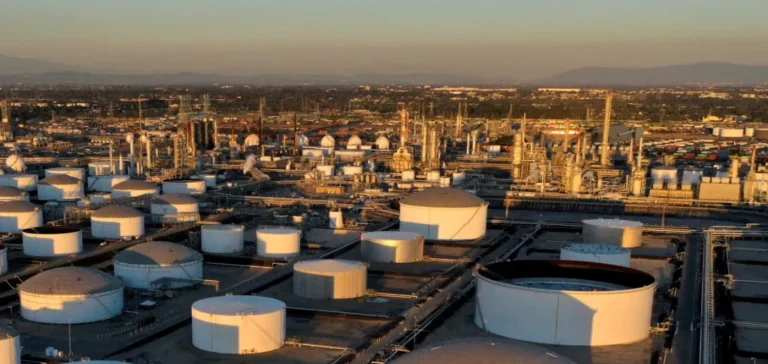US commercial crude oil stocks recorded an unexpected increase of 3.8 million barrels during the week ending June 27, bringing the total to 419 million barrels, according to the latest figures released by the US Energy Information Administration (EIA).
Significant decline in exports
This increase sharply contrasts with initial expectations from analysts surveyed by Bloomberg, who had forecast a decrease of around 2.7 million barrels for the period. This development is notably due to a significant drop in US oil exports, down by 46%, reaching their lowest level since July 2023. This sudden decline in exports marks a stark contrast with the trends observed over previous months, a period during which the US had maintained a sustained pace of international shipments. Previously, American export volumes had remained at significantly higher levels.
Rise in crude oil imports
In parallel with the decline in exports, US imports saw a notable rise, increasing by 16%, to their highest level since December 2024. This surge in imports directly contributed to the rise in oil inventories observed during this period. Moreover, the United States’ strategic reserve also recorded a significant increase, reaching 402.8 million barrels, its highest level since October 2022. This development highlights the extent of changes in US oil flows during this timeframe.
EIA statistical adjustments
The US Energy Information Administration nonetheless specified that a statistical adjustment had been applied, subtracting nearly one million barrels per day from volumes entering the American market. This statistical correction, conducted weekly, aims to rectify discrepancies in data recorded during previous periods and is not directly related to actual movements during the week in question. Regarding refinery activity, US refinery utilisation rates stood at 94.9%, slightly up from the previous week (94.7%). Domestic crude oil production remained stable at 13.43 million barrels per day.
Decrease in gasoline deliveries
Volumes of refined products delivered to the market, an indirect indicator of demand, remained relatively unchanged. However, gasoline deliveries in the US sharply decreased by 10.8%, illustrating a significant slowdown in this specific category. On Wednesday, around 15:00 GMT, oil prices were trading slightly higher. North Sea Brent crude for September delivery was up 0.48%, reaching $67.43 per barrel. West Texas Intermediate (WTI) for August delivery gained 0.34%, trading at $65.67.






















